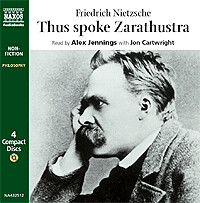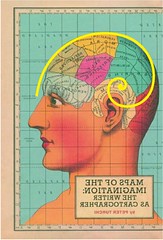 Image via Wikipedia
Image via Wikipedia
From a philosophical point of view, materialism represents some of the most negative aspects of our human nature, such as greed, selfishness, and inhumanity. It would be unjustified to put the label of “materialism” on any single ethnic group. However, being Chinese, I find it hard to ignore the excessive materialism in modern China, where money seems to be the sole “religion” in many people’s lives.
There are many reasons for this phenomenon - poverty, the social system, and even communism itself, but I have found all of these reasons to be superficial. I believe many Chinese people's “passion” for money has little or nothing to do with the reasons listed above. Instead, it has EVERYTHING to do with Chinese cultural ideology.
In China, there are two influential classical philosophies - Confucianism and Taoism - that dominate Chinese cultural ideology, and have for thousands of years of Chinese history. Both of these philosophies focus primarily on the practical aspects of human existence, or the “mundane.” Briefly speaking, Confucianism is about social stability while Taoism is about individual happiness. Even though Buddhism came to China during the early part of the first millennium and has undoubtedly had a great influence on Chinese culture, like Taoism, it is still a belief system focused mainly upon individual happiness. Soon after Buddhism spread throughout China, it quickly merged with Chinese culture and branched off into several sects and schools, the most common being Zen Buddhism, a school of Mahayana, with a following of between 500 and 1,000 million people throughout Korea, China, Japan and Vietnam.
Before the 19th century, China was almost completely closed off from the outside world. When China first opened its doors to the west in the middle of 19th century, these two philosophies were the whole content of the body of knowledge understood by Chinese intellects. It is a common belief in China that Knowledge isn’t something that can or should stand alone, but rather it is a subsidiary part of political or practical life. In ancient China, the only purpose for gaining knowledge was to gain political and social power. In his book “Mist of Metaphysics” Liu Xiaobo stated:
"One of the characteristics of Chinese culture is to provoke the human desire for power as much as possible. The path to becoming an intellectual is almost the only way to reach this goal.”
In Chinese culture, there is no concept of "God" in a monotheistic sense, no sense of "divinity," and no concept of absolute "truth," neither was there any scientific spirit that existed in ancient China. In other words, there were no existing bodies of knowledge other than those with the purpose of serving mundane life. I believe it was exactly this monotonic understanding of knowledge that has shaped many Chinese people’s materialistic attitudes toward life.
Certainly both Taoism and Confucianism did not teach people to be greedy, but one important idea that both of these philosophies teach is that there is no need to question or look for anything other than matters directly related to the practicalities of life.
Taoism is a very charming philosophy and can be understood in a very positive way, for example, the ideas of following our natural spirit and making harmony in our lives with or without material comforts are very appealing to many people, and I believe this truly was the original intent of Taoist philosophy. Unfortunately, this aspect of Taoism has only been taken and practiced among some intellectuals, such as artists and poets. Among most others, Taoism was simply understood as a pathway to physical comforts and happiness.
Under such a cultural background, when China once again opened its doors to the world during the 80’s, it was more than willing to embrace capitalism, and people’s materialistic desires that had been suppressed by traditional morality for thousands of years were finally unleashed under this perfect marriage. This is why even though China is completely under communist rule; it was still able to combine the communist political system with a capitalist economic system.
Some people may blame Communism for this materialism. I would totally disagree. Not only does Communism not encourage materialism, it encourages a kind of "puritanical" lifestyle in modern China. During the 50’s, China experienced a very anti-materialism social movement where almost everyone lived in very poor material conditions, but with a zealous mental enthusiasm similar to Europe during the middle ages. Needless to say, this did more harm than good. It created one of most devastating horrors in human history, now known as The Great Leap Forward, which cost tremendous loss of life. After that, Chinese people lived in very poor conditions until the 1980’s when China once again opened up to the outside world.
I truly believe that while materialism exists in every society in this world and greed is truly a common disposition of human nature, some types of cultural ideologies encourage such philosophies and dispositions, while others discourage them. I personally view the overwhelming growth of materialism in modern China as a consequence of the poor development on Chinese intellectual property.
Once again, to quote Liu Xiaobo:
“…The worst regression in Chinese history was the revival of feudalist ideology”
 Image by Nick in exsiliovia Flickr
Image by Nick in exsiliovia Flickr

























